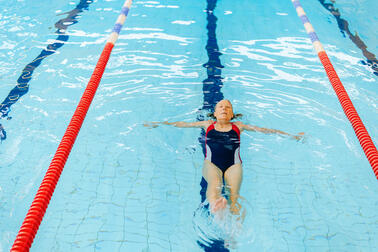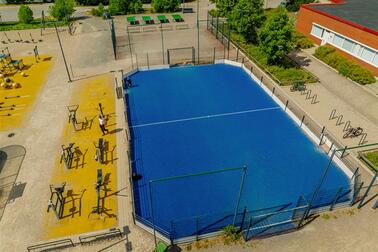
The purpose of the special swimming card is to offer people with disabilities or chronic illnesses the opportunity to exercise affordably. Previously, the swimming card has been granted to people with disabilities and based on specific medical diagnoses or medical reimbursements stated on the Kela social insurance card. However, applying medical diagnoses or labels on the Kela card as criteria put Helsinki residents in an unequal position. It also required the sports services employees to process sensitive medical data.
Moving forward, the special swimming card will continue to be granted to people with disabilities as they exercise less than other Helsinki residents, but would benefit from increased exercise the most. These people also have more restricted opportunities to access the affordable or free exercise options offered by the City, compared to other residents. The change made to the special swimming card is that the criteria no longer includes specific medical diagnoses or medical reimbursements shown on the Kela social insurance card.
From 1 March 2024 onwards, the special swimming card can be granted to a person with a parking card for people with reduced mobility or a disabled parking permit, a card for the visually disabled, or a taxi card granted for transport services within the meaning of the Disability Services Act. The new criteria also includes the EU Disability Card, which is estimated to increase the opportunities to receive a special swimming card for those who have a disability but did not have a diagnosis required previously.
"Changing the criteria of the special swimming card is not about saving money. The primary intention with this change is to ensure equal treatment of residents. In addition to this, the sports services staff will no longer have to process customers’ sensitive medical data", says Tuuli Salospohja, director of City of Helsinki Sports Services.
The special swimming card is valid at all City of Helsinki swimming halls(Link leads to external service) and outdoor swimming pools and the swimming halls of Urheiluhallit Oy for one year from the date of purchase. The special swimming card is also valid at the gyms at Itäkeskus, Jakomäki and Pirkkola swimming halls and the gym at the Swimming Stadium outdoor swimming pools. The card costs €60 + a personal loadable access and customer card for €4. The card can be used once a day, at most (1 time per day).
Special swimming cards issued before 1 March 2024 will remain valid for one year from the date of purchase. When the customer is renewing their swimming time included in the special swimming card, they must present proof of their eligibility based on the new criteria. The price of the special swimming card will not change, despite the changes in its criteria
Criteria assessed by the special swimming card working group
A multi-professional working group will regularly assess the criteria for granting the special swimming card and the related initiatives and proposals to assist the Sports and Leisure Committee with decision-making. To update the criteria of the special swimming card, organisations for people with disabilities and chronic illnesses were heard, and the Current Care Guidelines and assessments of medical professionals were studied to determine for which illnesses water exercise is especially useful and for which granting the special swimming card would be justified.


